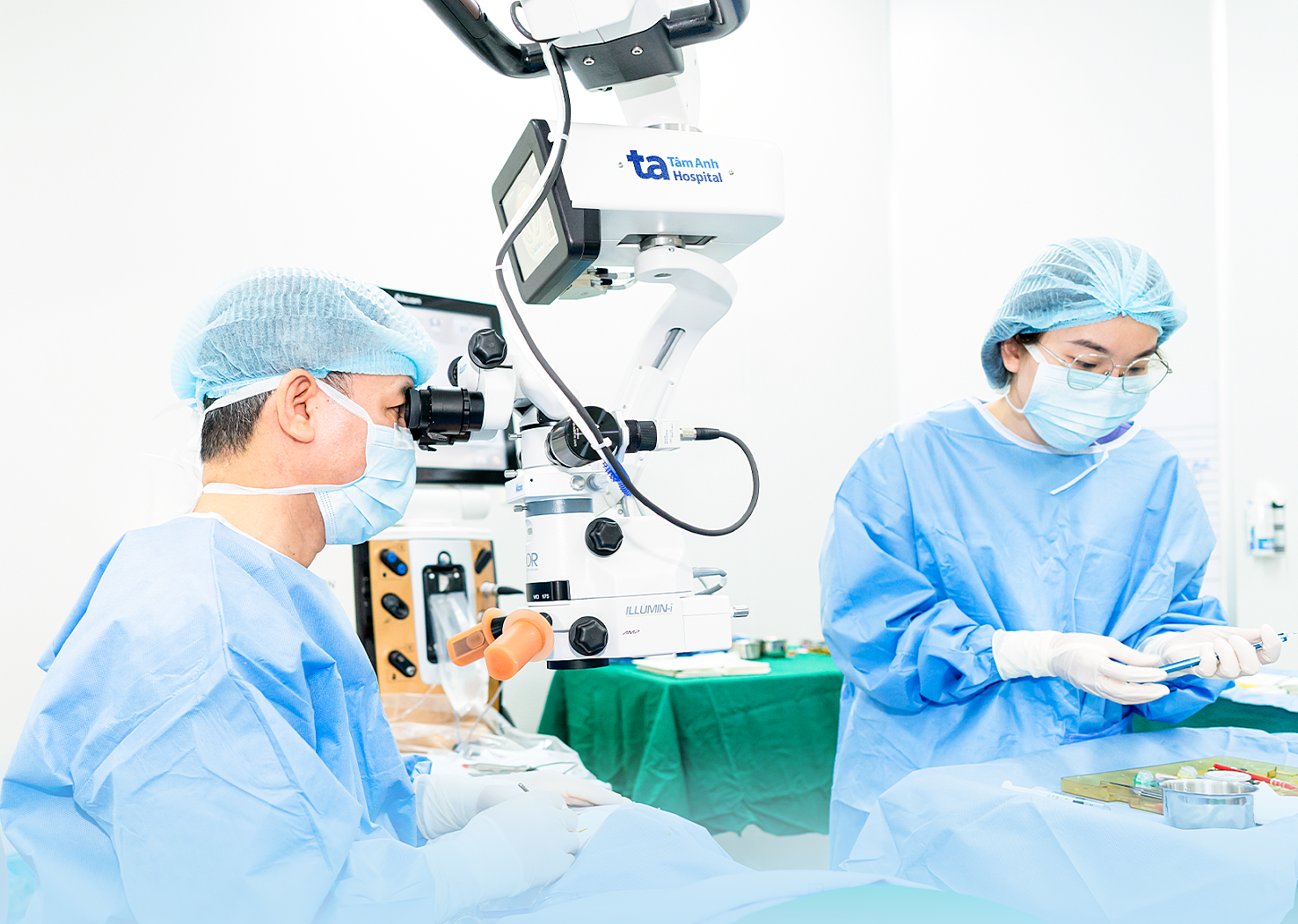Answer:
Retinal detachment is a serious condition where the light-sensitive retina at the back of the eye separates from the underlying layer. This can lead to permanent vision loss if not treated promptly.
Treatment for retinal detachment primarily involves surgery, the type of which depends on the location and extent of the detachment. Retinal detachment surgery is a complex ophthalmological procedure that aims to reattach the retina to restore vision.
A common complication after this procedure is cataract development, especially in cases where gas or oil is used inside the eye or multiple surgeries are required. This results from mechanical effects, changes in the intraocular environment, and oxidative stress in the eye after surgery.
 |
A doctor performs cataract surgery. Photo: Tam Anh General Hospital |
A doctor performs cataract surgery. Photo: Tam Anh General Hospital
You should visit a hospital with an ophthalmology department for a thorough examination and consultation. Doctors typically assess the severity of the cataract and how it affects the patient's vision.
If the cataract is mild and doesn't significantly impair central vision or hinder retinal examination, surgery may be postponed to monitor retinal stability. If the cataract substantially reduces vision or obstructs observation of the retina, the doctor may consider cataract surgery.
However, cataract surgery after retinal detachment repair is not a routine procedure. Patients who have undergone retinal surgery are more prone to complications like iris adhesions, shallow or deformed anterior chambers, pupil constriction, and weak or torn posterior capsules. There is also a risk of recurrent retinal detachment after cataract surgery, especially in individuals with severe myopia, peripheral degeneration, or congenitally thin retinas.
The prognosis for vision after cataract surgery in patients with prior retinal detachment depends mainly on the retina's recovery, particularly the macula. If the macula experienced prolonged detachment or the optic nerve was damaged, vision may not fully recover as expected, even with timely surgery. Therefore, careful evaluation and timing of surgery are crucial.
Dr. Tang Ngoc Anh
Deputy Head of Ophthalmology Department, High-Tech Eye Center
Tam Anh General Hospital, TP HCM
| Readers can submit questions about eye diseases here for doctors to answer. |












